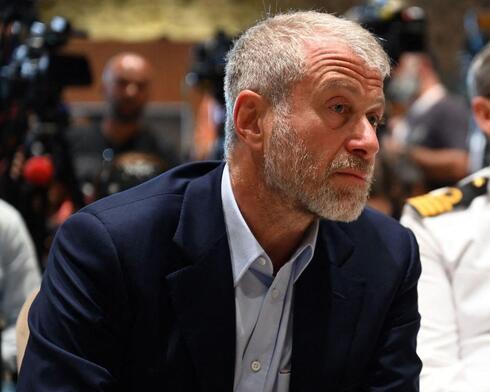
Roman Abramovich’s $2.2 million donation to Israeli NGO blocked by Supreme Court over sanctions
The Supreme Court overturned the District Court’s ruling regarding the transfer of a donation from the billionaire to Zaka, Israel's leading non-governmental rescue and recovery organization
The Supreme Court of Israel has overturned a lower court's decision regarding the transfer of a donation from billionaire Roman Abramovich to the Zaka organization. The Tel Aviv District Court had previously ruled in favor of Abramovich's request to transfer 8 million shekels (approximately $2.2 million) from his account at Bank Mizrahi Tefahot to Zaka, Israel's leading non-governmental rescue and recovery organization.
However, the Supreme Court's decision, following an appeal by the bank, marks a reversal of this judgment. The case revolves around the bank's refusal to transfer the funds due to sanctions imposed on Abramovich by the European Union and the United Kingdom. The Supreme Court's ruling underscores the complex legal and financial implications of international sanctions on banking transactions and highlights the broader legal debate surrounding the authority of foreign governments over Israeli citizens.
Mizrahi Tefahot filed an appeal against the decision of the Tel Aviv District Court, who at the end of January accepted the request of Abramovich and the Zaka organization, represented by attorneys Shmulik Kasuto and Bela Peled, to order the bank to transfer a donation of NIS 8 million from Abramovich's account in the bank to the Zaka account in the bank. The decision was given contrary to the position of Israel’s Attorney General and contrary to the position of the bank, which refused to transfer the donation in light of the sanctions imposed on Abramovich in the European Union and the United Kingdom which the bank adopted.
The bank claimed that allowing the decision of the District Court in Tel Aviv to stand would cause enormous and irreversible damage to the bank and its customers, the banking system and the economy as a whole. This, because the meaning of accepting the request is that the bank must violate international sanctions. The bank claimed that the violation of the sanctions exposes the bank to significant risks.
Today the Supreme Court accepted the bank's claims. Judge Gila Canfy-Steinitz stated that "without underestimating the importance of Zaka's activity, the respondents (Abramovich and Zaka) have not proven that not transferring the donation immediately will irreversibly damage its activity. The respondents did not present actual evidence concerning the financial condition of Zaka, or its ability to raise the funds it needs to finance its activities from other sources, especially when the state stated that it acted to provide an immediate response to Zaka's volunteers with regard to the support and emotional treatments they need. On the other hand, it was proven at the level required at this preliminary stage that the transfer of the donation has the potential to expose the bank to significant risks. Contrary to the ruling of the District Court, I do not believe that this is a 'theoretical damage' that has not been proven by the bank. Even if these damages are not visible before the risk is realized, this does not eliminate the potential for their realization."
Attorney Shmulik Kasuto, who represents Roman Abramovich and Zaka, responded: "We regret the Supreme Court's decision not to allow Mr. Abramovich to donate NIS 8 million to Zaka during the war. The purpose of the lawsuit was to allow Zaka, which receives minimal government support, to prepare for the continued challenges that beset us during the war and to continue their important work.
"Mr. Abramovich, who is an Israeli citizen, requested to transfer a donation from his personal account at Bank Mizrahi in Israel to the Zaka volunteers, who risked their lives on October 7 and since then have been working day and night for the martyrs and victims. As noted by experts in court, this donation is within the territory of Israel, far from the sanctions regime of the European Union and Great Britain, and even complies with all regulations and does not pose any risk to the bank.
"The District Court initially approved Mr. Abramovich's request, and determined that Mizrahi Bank did not act reasonably when it refused, but following the intervention of the Attorney General in the case, the court has now determined otherwise. The intervention and position of the Attorney General constitutes a worrying precedent as it grants foreign governments authority over the citizens of Israel even when the Israeli government has decided otherwise. We will study and thoroughly examine the verdict in its entirety, and we will consider our next legal steps."















